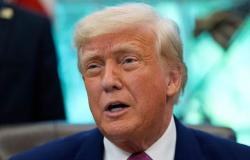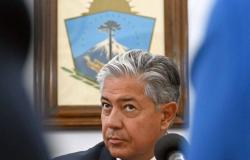The relationship between money and mind goes far beyond numbers. In recent years, awareness of the impact of financial health on our emotional and mental well -being has grown. The financial wellness has become a key piece of integral stabilityand more and more studies and professionals coincide with their importance.
(Continue with: Discover the surprising hole function in the locks that few know)
According to a report from the American Psychological Association (APA), money has been one of the main sources of global stress for more than a decade. This financial pressure not only affects the pocket, it is also manifested in the body and mind: anxiety, insomnia, irritability and emotional disorders are just some of its consequences.
From a psychological look, the expert Diego Guaranda explains that “it impacts significantly since it can generate anxiety, tension and uncertaintygiven that having instability cannot cover certain basic food, housing or debt payments, which leads to a sense of restlessness affecting mood. ”
These emotions become alert signs. As the psychology expert indicates, “the most common signals are usually depressive mood, anguish, anxiety, nervousness and physical symptoms that They are impacting our way of facing different situations in an adequate way”.
To face this type of stress, the specialist suggests a combination of practical and emotional tools: “The most common tools can be breathing or relaxation techniques, mindfulness and cognitive distraction techniquesin addition to focusing on prioritizing expenses that may be easier to cancel or pay for debt and even certain priorities such as food, health or housing. ”
Finance with purpose: habits that add up well
In this context, the Personal Finance Expert Ivanna Jones, founder of I realizedshare your vision on how to achieve a balance between financial and emotional:
“when we think of well -being, we usually imagine health, full relations or mental peace. However, we rarely include our finances in that equation. And the truth is that money, well managed, can become a great ally of integral well -being, ”he says.
From his experience advising people on their financial path, Jones recommend adopting habits such as:
- Make an analysis of your current financial situation: to have clarity about debts, income and expenses is the first step to recover control. “Sometimes we avoid looking at the numbers for fear, but when you face them, you recover control.”
- Budget with conscience: a budget not only organizes, also empowers. “It must include expenses to enjoy, it is not about restricting, but about choosing.”
- Build a background of tranquility: beyond calling it “Emergency Fund”, Ivanna prefers the term “tranquility fund”, due to the positive impact that has a mental health knowing that there is an available support.
- Find support if you need it: “Talking about money should not be a taboo.” Professional orientation or honest conversation can open new perspectives.
- Prioritize quality of life over lifestyle: it is not about appearing, but about feeling good about yourself and with your decisions.
- Do not compare yourself with others: “The only person who makes sense of their financial decisions is you, and your version of the future.”
“Money, when we use it with intention and balance, becomes a tool to live better. Because healthy finances are not destiny, but the vehicle towards a life with more sense, calm and freedom” “Ivanna Jones, expert in personal finance
Thus you can take care of your money
- Make a monthly budget
- Priorize basic needs
- Establish an emergency fund
- Practice conscious consumption
- Design a plan to pay debts
- Add emotional management tools
- Find out on financial education
- Establish savings goals with purpose
- Do not compare to others
What you should know about finance
From the economy, the impact is also evident. The economist Jorge Calderón The deep relationship between money and health management stands out: “There is increasing concern about the relationship that personal or company with people’s health have … Therefore, it is important to develop some habits that allow us to have peace of mind in our day to day.”
Calderón recommends carrying out an income and expenses analysis, creating responsible consumption habits and understanding the operation of financial tools such as credit cards. It also warns about the temptation of rapid profits on unregulated platforms or cryptocurrencies.
In sum, the financial wellness is not only to have a stable bank account, but a balance that allows you to live peacefully, make conscious decisions and take care of our emotional health. Investing in knowledge, developing healthy habits and prioritizing the important thing, can be the first step for a fuller life, both economically and emotionally.
Do you want to access all the quality content without limits? Subscribe here!






